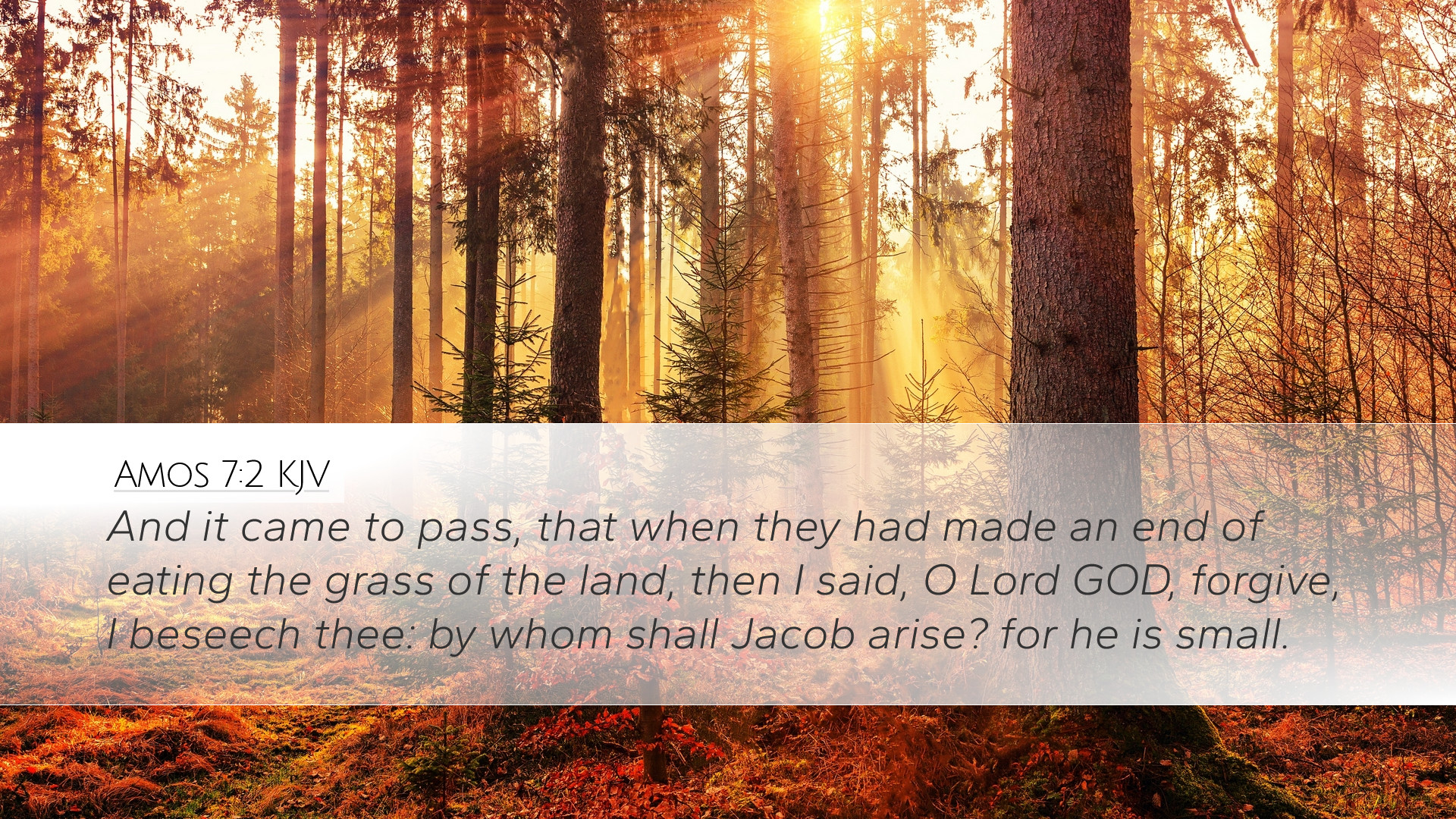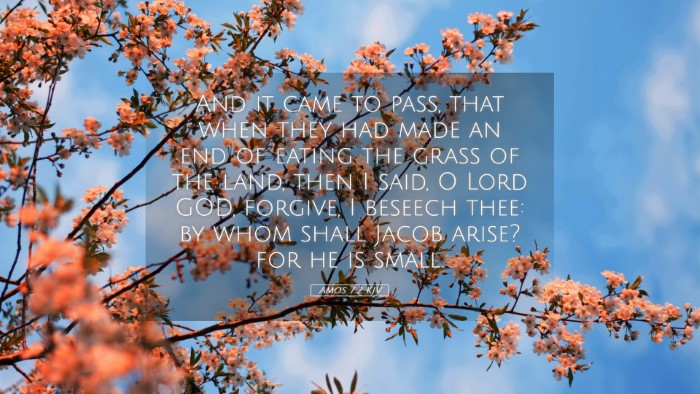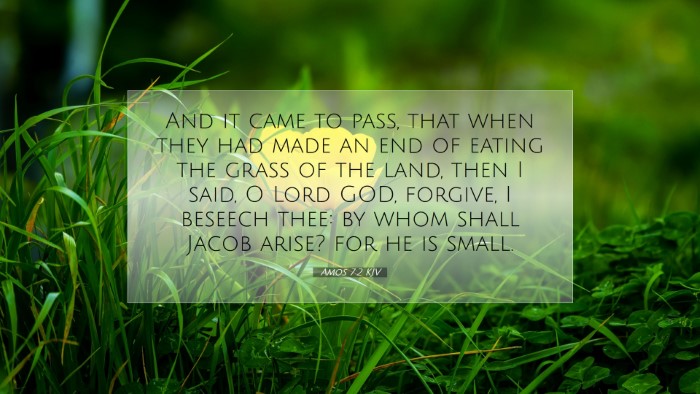Old Testament
Genesis Exodus Leviticus Numbers Deuteronomy Joshua Judges Ruth 1 Samuel 2 Samuel 1 Kings 2 Kings 1 Chronicles 2 Chronicles Ezra Nehemiah Esther Job Psalms Proverbs Ecclesiastes Song of Solomon Isaiah Jeremiah Lamentations Ezekiel Daniel Hosea Joel Amos Obadiah Jonah Micah Nahum Habakkuk Zephaniah Haggai Zechariah MalachiAmos 7:2
Amos 7:2 KJV
And it came to pass, that when they had made an end of eating the grass of the land, then I said, O Lord GOD, forgive, I beseech thee: by whom shall Jacob arise? for he is small.
Amos 7:2 Bible Commentary
Commentary on Amos 7:2
Amos 7:2 (KJV): "And it came to pass, that when they had made an end of eating the grass of the land, then I said, O Lord God, forgive, I beseech thee: by whom shall Jacob arise? for he is small."
Overview
This passage presents a poignant moment in Amos's prophetic ministry, wherein he intercedes on behalf of the people of Israel. The imagery of the "grass" signifies the complete devastation of the land, a recurring theme in the book of Amos, which emphasizes both judgment and mercy.
Contextual Background
Amos, a shepherd from Tekoa, was called by God to prophesy against the Northern Kingdom of Israel during a time of prosperity, marked by moral and social decay. His messages often focused on the themes of divine judgment, social justice, and the faithfulness of God to His covenant people. The events leading to Amos 7 involve a series of prophetic visions, showcasing God's planned judgment against Israel.
Interpretation and Insights
- The Vision of Devastation: From the outset of the chapter, Amos describes a vision of locusts that eat up the grass of the land. This imagery reflects the imminent threat of judgment that God revealed to Amos—locusts were a known plague capable of devastating agricultural societies. Henry notes that this vision serves both as a warning and a call to repentance.
- Amos’s Intercession: In response to the vision, Amos pleads with God for forgiveness, expressing a deep concern for the fate of Jacob (Israel). Barnes emphasizes considered Amos's role as a mediator, drawing parallels to the intercessory prayers of other biblical figures, such as Moses. His concern for Israel's "smallness" conveys both a recognition of their vulnerability and a plea for divine grace.
Theological Implications
The themes in Amos 7:2 offer profound theological insights for understanding God’s nature and His relationship with humanity:
- The Justice of God: The judgment represented by the grass consuming locusts reminds us that God's justice must ultimately confront sin. Clarke states that God's judgment is manifested in the natural realm—allowing calamity as a means of correction and discipline for His people.
- The Mercy of God: Amos's plea reveals the depth of God’s mercy. Despite the deserved judgment, God listens to His faithful servant and shows compassion towards His people. This duality highlights the character of God—He is just, yet full of mercy. This principle is echoed throughout Scripture and serves as a model for pastoral intercession.
Application for Modern Believers
For pastors, students, and scholars, Amos 7:2 is foundational in understanding the role of intercession and the nature of God in dealing with sin:
- Model of Intercession: Believers are called to approach God with humility and an earnest desire for His mercy. Amos serves as an example, emphasizing the need for leaders within the church to advocate for their communities through prayer.
- Understanding Vulnerability: The acknowledgment of Israel's smallness teaches us about the importance of recognizing our limitations. In today’s context, it highlights the need for reliance on God's strength in times of difficulty.
- Call to Repentance: The overarching message calls individuals and the church to reflect on societal issues, confront sins, and seek genuine repentance not just for personal failings but collectively, as a body of Christ.
Conclusion
Amos 7:2 encapsulates vital themes that are relevant to both ancient Israel and modern believers. Through the lens of this passage, we see the balance of God's judgment and mercy, the importance of intercessory prayer, and a call to both personal and communal repentance. As we contemplate this scripture, may it lead us to deeper understanding and a closer relationship with God, urging us to respond to His calls both in our lives and in our communities.


